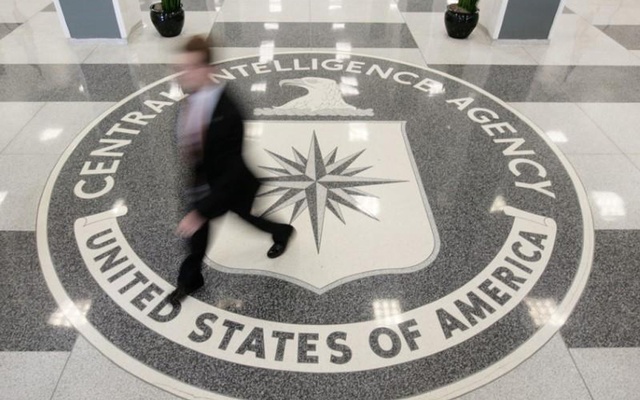The Trump Administration has authorized CIA cyber-attacks since 2018 inside Iran.
The secret Presidential finding was signed by Donald Trump to give the agency more latitude in its operations and range of targets. It complemented the imposition of comprehensive US sanctions in November 2018, six months after the Administration withdrew from the 2015 nuclear agreement between Iran and the 5+1 Powers (US, UK, France, Germany, China, and Russia).
The revelation, from “former US officials with direct knowledge of the matter”, comes amid a series of explosions at Iranian military installations, including the Natanz nuclear complex.
The Islamic Republic’s economy is in a downward spiral. The rial set another all-time low of 243,000:1 v. the US dollar on Wednesday, a 70% fall in value since January.
See Iran’s Leaders Silent Amid Currency’s Record-Setting Tumble
Iran Acknowledges “Deliberate Attack” on Natanz Nuclear Site
A former US Government official said the “very aggressive” finding “gave the agency very specific authorities to really take the fight offensively to a handful of adversarial countries”, including Iran, Russia, China, and North Korea.
A second former official explained, “The White House wanted a vehicle to strike back. And this was the way to do it.”
The US, alongside Israel, first carried out cyber-attacks against the Islamic Republic in 2009. The Stuxnet virus destroyed centrifuges in Iran’s nuclear program.
The 2018 finding permits attacks on infrastructure such as petrochemical plants. Hacking is sanctioned of media organizations, charities, religious institutions, or businesses linked to intelligence services.
A former official said the CIA has carried out at least a dozen operations: “This has been a combination of destructive things — stuff is on fire and exploding — and also public dissemination of data: leaking or things that look like leaking.”
In March 2019, an unknown group used the Telegram platform to post the names, addresses, phone numbers and photos of Iranian intelligence officers allegedly involved in hacking operations. In November, the details of 15 million debit cards for customers of three Iranian banks linked to Iran’s Revolutionary Guards were disseminated through Telegram.


The revolution achieved everything it set out to do. Justice, equality, prosperity, spirituality, freedom, democracy…
https://en.radiofarda.com/a/brother-of-alinejad-sentenced-to-eight-years-in-iran/30729790.html